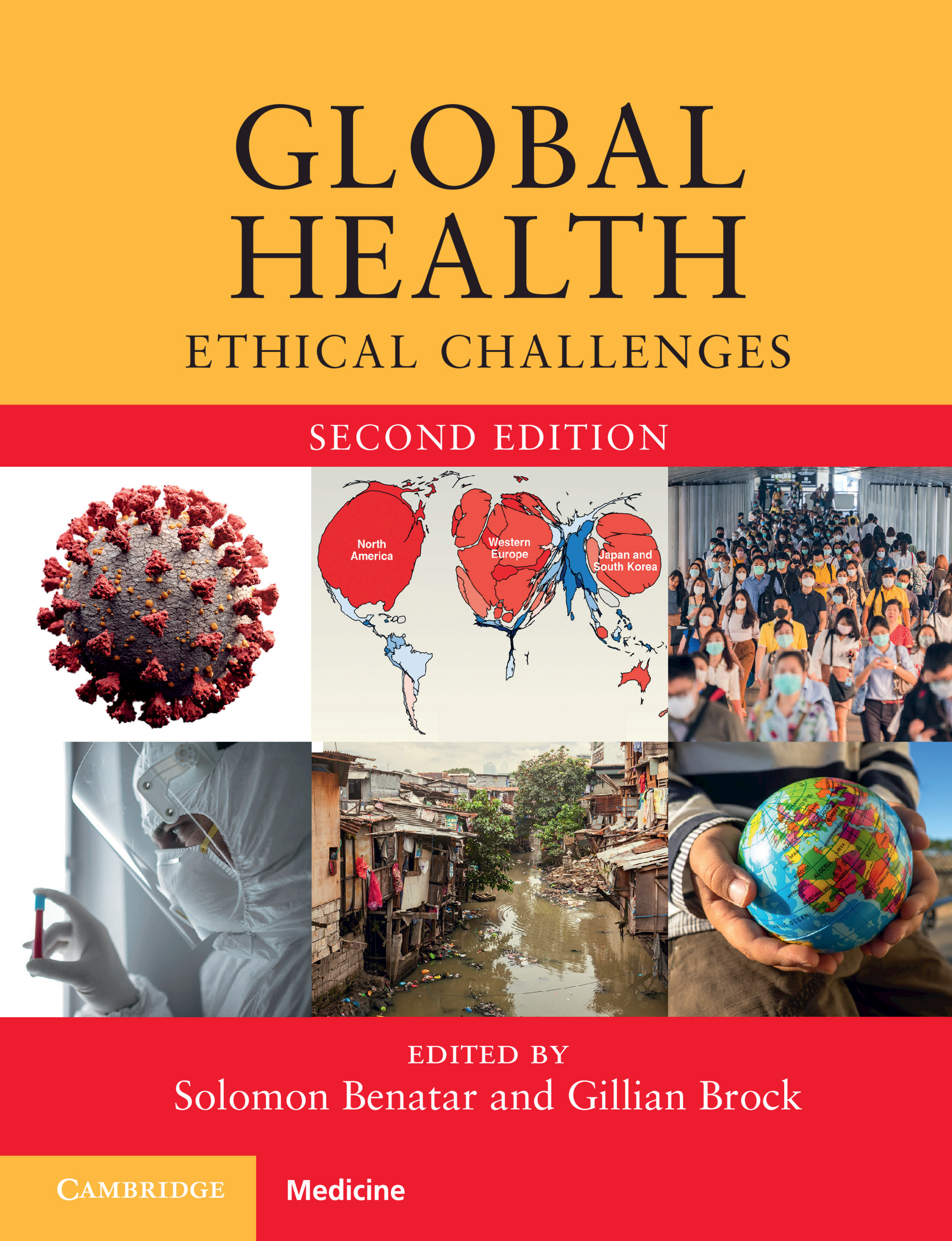Book contents
- Global Health
- Global Health
- Copyright page
- Contents
- Contributors
- Introduction
- Section 1 Global Health: Definitions and Descriptions
- Section 2 Global Health Ethics, Responsibilities, and Justice: Some Central Issues
- Section 3 Analyzing Some Reasons for Poor Health and Responsibilities to Address Them
- Section 4 Environmental/Ecological Considerations and Planetary Health
- Section 5 The Importance of Including Cross-Cultural Perspectives and the Need for Dialogue
- Section 6 Shaping the Future
- Chapter 29 Global Health Research
- Chapter 30 Justice and Research in Developing Countries
- Chapter 31 The Health Impact Fund
- Chapter 32 Evaluating Global Health Impact and Increasing Access to Essential Medicines
- Chapter 33 Philanthrocapitalism and Global Health
- Chapter 34 Big Data and Artificial Intelligence for Global Health
- Chapter 35 Global Health Governance for Developing Sustainability
- Chapter 36 Teaching Global Health Ethics
- Chapter 37 Teaching Global Health Ethics
- Chapter 38 Toward a New Common Sense
- Index
- References
Chapter 31 - The Health Impact Fund
How to Make New Medicines Accessible to All
from Section 6 - Shaping the Future
Published online by Cambridge University Press: 04 February 2021
- Global Health
- Global Health
- Copyright page
- Contents
- Contributors
- Introduction
- Section 1 Global Health: Definitions and Descriptions
- Section 2 Global Health Ethics, Responsibilities, and Justice: Some Central Issues
- Section 3 Analyzing Some Reasons for Poor Health and Responsibilities to Address Them
- Section 4 Environmental/Ecological Considerations and Planetary Health
- Section 5 The Importance of Including Cross-Cultural Perspectives and the Need for Dialogue
- Section 6 Shaping the Future
- Chapter 29 Global Health Research
- Chapter 30 Justice and Research in Developing Countries
- Chapter 31 The Health Impact Fund
- Chapter 32 Evaluating Global Health Impact and Increasing Access to Essential Medicines
- Chapter 33 Philanthrocapitalism and Global Health
- Chapter 34 Big Data and Artificial Intelligence for Global Health
- Chapter 35 Global Health Governance for Developing Sustainability
- Chapter 36 Teaching Global Health Ethics
- Chapter 37 Teaching Global Health Ethics
- Chapter 38 Toward a New Common Sense
- Index
- References
Summary
Some 500 million people, including 260 million children under the age of five, have died from hunger and remediable diseases in peacetime in the 30 years since the end of the cold war. This is vastly more than have perished from wars, civil wars, and government repression over the entire twentieth century. And poverty continues unabated, as the official statistics amply confirm: of the 7.6 billion people alive today, 821 million are officially counted as undernourished, 150 million are homeless and about 1.6 billion lack adequate shelter, 2.1 billion have no safe drinking water at home, and 4.5 billion lack safe sanitation, 1.2 billion lack electricity, 2 billion are lacking access to essential medicines, 750 million adults are illiterate, and 152 million children (aged 5–17) are victims of child labor – often under slavery-like and hazardous conditions as soldiers, prostitutes, or domestic servants or in agriculture, construction, or textile or carpet production.
- Type
- Chapter
- Information
- Global HealthEthical Challenges, pp. 394 - 405Publisher: Cambridge University PressPrint publication year: 2021
References
- 1
- Cited by



